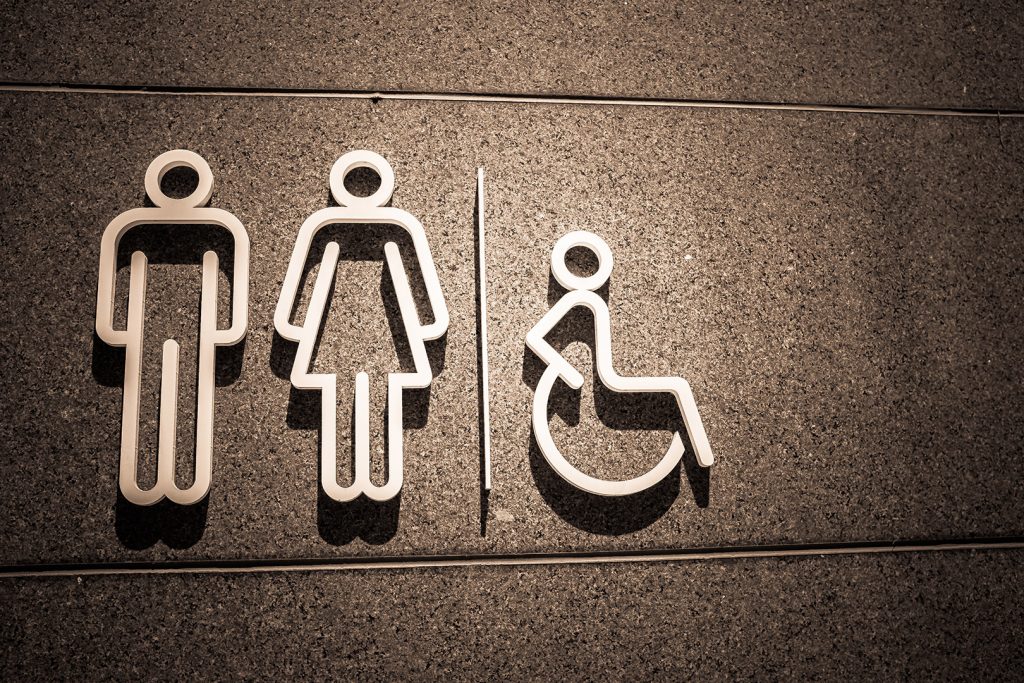
Almost 12 years ago, in 2007, the State of Iowa amended its Civil Rights Act to include sexual orientation and gender identity to its list of protected classes. It’s hard to believe it took so long, but Iowa recently faced its first discrimination case under the gender identity protection clause. In that case, an eight-member jury held an Iowa prison responsible for discriminating against Jess Vroegh, a transgender employee.
Bathroom Discrimination
Jess Vroegh started his career as a nurse at the Iowa Correctional Institution for Women in Mitchellville, Iowa in 2009. For the first five years, Jess was seen as female at work, and even used the female locker rooms and bathrooms. However, in 2014, Jess was diagnosed with gender dysphoria and informed his boss that he was going to begin his transition both medically and socially.
In 2015, Jess approached his boss, Warden Patti Wachtendorf, and requested to begin using the men’s restroom and locker room. Wachtendorf refused and expressed concern for the other male employees and how Jess’ presence would make them feel. So, Wachtendorf’s answer was to provide Jess a separate, gender-neutral bathroom.
Requiring Jess to use his own separate locker room and restroom would likely have been enough to amount to discrimination under Iowa’s law, but on top of that, the separate bathroom provided required Jess to go outside to a separate building and go through security each and every time he had to go to the bathroom.
Discrimination in Medical Coverage
Around this same time in 2015, Jess was also seeking to transition medically. So, he looked into chest surgery in order to remove his breasts. Wellmark, the company that provides the health insurance coverage for employees of the Iowa Department of Corrections, however, denied Jess coverage for his surgery even though the surgery had been recommended by his doctors in order to treat his gender dysphoria.
The jury agreed that Jess had faced discrimination both by the Department of Corrections and by the Department of Administrative Services, who administers the benefits to state employees. They awarded him $120,000 for the emotional distress he was forced to face as a result of the discrimination. Iowa’s Civil Rights Act was amended over a decade ago to protect those who face discrimination as a result of their gender identity, but it was Jess Veough who was the first to stand up and speak out against the treatment he faced. The ACLU, who represented Jess in his lawsuit, called it an “historic day for transgender Iowans, their friends and families,” and Jess said in his statement that while the lawsuit was “difficult and emotionally very trying…it’s important for all the transgender Iowans who come after me.”
The Department of Corrections has not announced whether or not it will appeal the ruling.
If you or someone you love has been discriminated against, talk to an attorney in your area.
